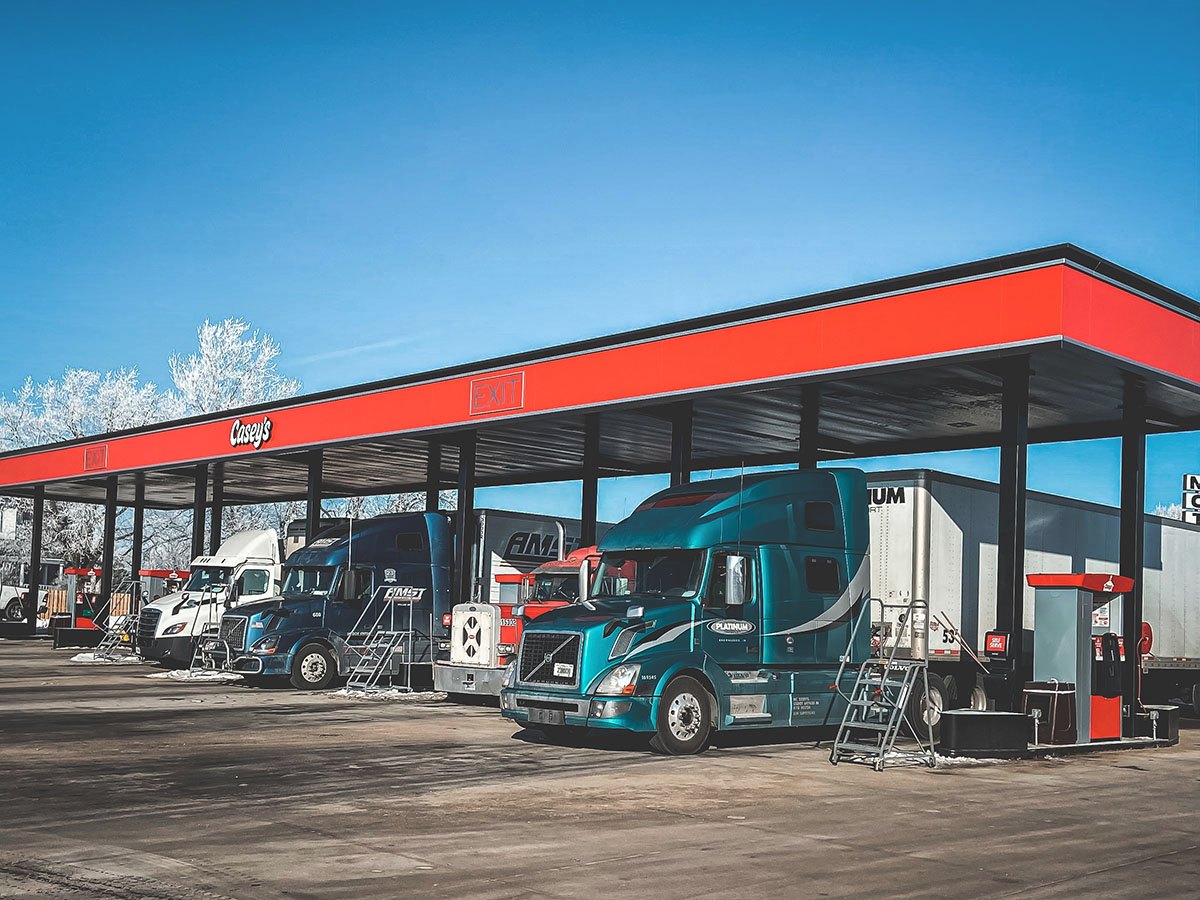Los elevados costes del combustible y las formas de combatirlos, ya sea mediante tarjetas de descuento o una planificación más estratégica, están en el punto de mira de todos los camioneros. Los precios del gasóleo siguen subiendo cada semana en la mayor parte del país, según el Administración de Información Energética de EE.UU.. Los precios del combustible han desbancado a la escasez de conductores del primer puesto como principal preocupación del sector del transporte por carretera por primera vez en cinco años, según el 18º informe anual del Instituto Americano de Investigación del Transporte (ATRI) sobre los principales problemas del sector.
¿Qué se puede hacer? Utilizar una tarjeta de combustible con descuento es una de las formas más sencillas que tienen los camioneros de ahorrar dinero en el surtidor, y hay algunas formas adicionales de ahorrar dinero que realmente sumarán y marcarán una diferencia sustancial.
TARJETAS DE COMBUSTIBLE
Las grandes empresas de transporte pueden aprovechar su tamaño y flujo de caja para aliviar el impacto de los altos costes del combustible, pero no es tan fácil para un autónomo con sólo uno o dos camiones. Una de las formas más sencillas de ahorrar dinero en el surtidor es solicitar una tarjeta de combustible con descuento. Empresas como Comdata y EFS negocian precios más bajos de los minoristas de combustible en todo el país, por lo que los conductores pueden obtener ahorros significativos. Y cada pequeño ahorro cuenta: llenar el depósito de un camión de 250 galones cuesta ahora más de $1.000, frente a los $800 de hace un año.
En TBS Comdata y TBS EFS pueden ahorrar a los conductores hasta 90¢ por galón en algunos lugares y ambas están cargadas de beneficios adicionales, tales como herramientas para realizar un seguimiento de los gastos de combustible; la capacidad de establecer límites de gasto y especificar los productos autorizados para la compra; la opción de depositar los pagos de factores directamente a la tarjeta; programas de fidelización con ahorros en neumáticos, piezas, servicios legales, y mucho más.
Así que, si te has estado preguntando qué tarjeta de combustible para camioneros es la mejor, ten en cuenta qué tarjetas ofrecen más ventajas además de los descuentos en el precio.
OTRAS FORMAS DE AHORRAR
Puede sonar extraño, pero hay otras formas de ahorrar en combustible que no implican combustible en absoluto.
El mantenimiento de los neumáticos del camión (presión, desgaste, programa de sustitución) puede tener un GRAN impacto en el consumo de combustible. Si los neumáticos están poco inflados, flexionan más de lo debido. Esto genera más calor y aumenta la resistencia a la rodadura, lo que incrementa el consumo y desperdicia combustible.
Los neumáticos sobreinflados son duros y rígidos, reducen la tracción y hacen más difícil parar y arrancar debido a la menor cantidad de goma en contacto con la carretera. Si el motor tiene que trabajar más para ponerse en marcha y parar, se quema más combustible y se malgasta dinero. Consulte nuestro e-book sobre neumáticos más formas de mantener los neumáticos en perfecto estado.
Además, practicar hábitos de conducción seguros puede reducir significativamente el consumo de combustible. Es fácil querer ir a toda pastilla, pero tener el pie pesado (entre otras cosas) puede gastar combustible y provocar un desgaste innecesario del motor. Lea 4 formas de ahorrar en combustible para más detalles sobre cómo mejorar el consumo de combustible y ahorrar dinero.
FACTORING
Como ya se ha mencionado, las grandes empresas de transporte suelen tener liquidez para soportar periodos de precios altos del combustible. Como propietario-operador con un puñado de camiones (o incluso sólo uno), pasar los costes del combustible a los clientes no alivia la necesidad de más flujo de caja AHORA. Esos propietarios-operadores siguen esperando 30, 60 o incluso 90 días a que sus clientes paguen. ¿Cuántos litros de combustible han gastado para entonces?
La solución es sencilla: asociarse con una empresa de factoraje como TBS Factoring Service y cobrar el mismo día en que se entrega la carga. Se acabó esperar a que los clientes paguen y sudar en el surtidor de combustible mientras esas cifras suben más y más. Además, la financiación TBS Comdata o las tarjetas de combustible TBS EFS a través del factoring es rápido y sencillo. Tanto si se trata de una gran operación de transporte por carretera como si acaba de empezar, las tarjetas de combustible con descuento son una forma inteligente de ahorrar dinero, especialmente en épocas de precios altos del combustible. Pero no son la única solución. Planificar las rutas de antemano para asegurar los precios más baratos, practicar buenos hábitos de conducción, asegurarse de que los neumáticos (y todo el equipo) están funcionando a niveles máximos, y el uso de un servicio de factoring para ayudar con el flujo de caja son todas formas de soportar estos altos precios del combustible.





